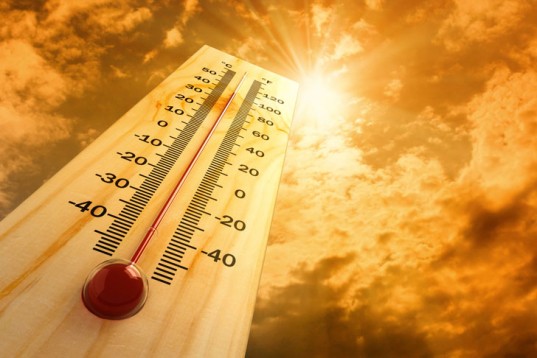Beat the heat - keep your aquarium cool this summer

As the summer days stretch on and the mercury inches up the thermometer, it can be all too easy to enjoy the sunshine and forget about the effects of the heat on your fish. But if you find that the water in your aquarium is slowly hotting up, don’t be alarmed, as there are plenty of easy ways to keep things cool and keep your fish happy.
Firstly, as long as the level of oxygen remains high, you needn’t be too concerned by temperatures over 27°C (80°F). It isn’t always the direct temperature of your aquarium that causes the most distress to fish; it’s more often the fact that higher temperatures will reduce the amount of dissolved oxygen in the water. The higher your stock levels, the more is required to keep them alive, so simply ensuring that your aquarium isn’t crowded can help.
If your tank is freshwater (as opposed to marine) then 30% water changes with cooler water 21°C(around 70°F) can be performed daily. Removing the hood and allowing evaporation can help to keep things cool, but do remember that this could allow fish to jump out! If your aquarium is marine, then adding floating bottles of frozen water can help and this technique can be used in any tank. However it’s best to ensure that you don't overfill plastic bottles before freezing them, so as to avoid splitting. A similar solution would be to place your external filter in a bucket that can be packed with ice to cool the water as it passes through the filter, or alternatively, pass the filter pipe work through this bucket instead.
Other options include switching off aquarium lights (especially if they are metal halide or T5 lights, as these can generate a lot of excess heat), or ensuring that the surrounding air itself is cool through the use of an air conditioner in the room where the aquarium is located.
Often the simplest solutions are the best though, so if your tank is standing in direct sunlight for much of the day, block the sunlight by simply drawing the blinds or curtains. This has the added benefit of reducing excessive algae growth.
Finally, don’t make the common mistake of unplugging your aquarium’s heater – it won't turn itself on until the temperature drops, and the temperature of your tank can drop rapidly at night, so it’s always a good idea to keep it plugged in rather than risk problems later.
Top tips - and the products that can help:
- When changing your water, don't forget to add a water conditioner such as Aqua Care Tap Water Conditioner or similar to ensure that the new water is free of chlorine and to reduce any associated stress.
- Don't just guess - make sure you have a suitable thermometer - check out the following link: https://www.fishkeeper.co.uk/aquarium-products/heaters/thermometers
- Take the opportunity to check your water quality with a test kit: https://www.fishkeeper.co.uk/aquarium-products/test-kits/liquid-test-kits
- A quality air pump can also help cool things down by increasing circulation and gaseous exchange. Air pump
- For real peace of mind and to protect delicate species such as corals, you can't beat a D-D Chiller
- Finally, investing in a cooling fan like the BlueMarine cooling fan which can prove effective.



